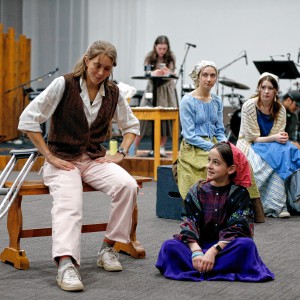Chiefs say Greenfield’s police cuts will hurt surrounding towns
| Published: 01-23-2023 6:18 PM |
In the wake of the Greenfield Police Department’s decision to leave its overnight shift unstaffed, calls will be funneled to State Police and mutual aid partners, a move that other local chiefs say will have an effect on the vast majority of Franklin County.
Greenfield Police Chief Robert Haigh Jr. explained at last week’s City Council meeting that there will be no officers patrolling the city’s streets between 11 p.m. and 7 a.m. beginning Feb. 1. The decision means 911 calls for police response will be transferred to State Police, which already functions as the back-up force for Deerfield, as well as the primary overnight police department for Franklin County’s smaller towns.
Haigh had described the loss of the midnight coverage as the fiscal year 2023 budget cuts “coming to fruition,” referring to the council’s vote in May 2022 to reduce the Police Department budget by $400,000 for salaries and $25,000 in expenses.
As of Friday, however, the Greenfield Police Department had not formally requested State Police to provide primary coverage of its overnight shift, according to Massachusetts State Police spokesperson David Procopio.
Without Greenfield, Deerfield, Montague and Orange will be the only three communities in the county that still staff an overnight shift.
After Haigh’s announcement last week, the City Council has scheduled a special meeting for Wednesday, Jan. 25, at 6 p.m. with plans to discuss the proposed elimination of the night shift “with an alternative plan to be introduced,” according to the meeting agenda.
Deerfield Police Chief John Paciorek Jr. said the decision to have State Police cover Greenfield overnight will have an effect on the vast majority of Franklin County. If State Police are responding to Greenfield, then smaller towns, such as Conway or Ashfield, which rely on the state for nighttime coverage, may be subject to longer response times as they wait for mutual aid.
“I’ve spoken to Chief Haigh, and unfortunately Greenfield’s actions will have a ripple effect on the county as a whole,” Paciorek, who is also president of the Franklin County Chiefs of Police Association, wrote in an email. “This may leave Deerfield and Montague covering calls for service in other communities.”
Article continues after...
Yesterday's Most Read Articles
 Greenfield man arrested in New York on murder charge
Greenfield man arrested in New York on murder charge
 Man allegedly steals $100K worth of items from Northampton, South Deerfield businesses
Man allegedly steals $100K worth of items from Northampton, South Deerfield businesses
 Greenfield Police Logs: April 9 to April 17, 2024
Greenfield Police Logs: April 9 to April 17, 2024
 Former Leyden police chief Daniel Galvis charged with larceny
Former Leyden police chief Daniel Galvis charged with larceny
 Shea Theater mural artist chosen out of 354 applicants
Shea Theater mural artist chosen out of 354 applicants
 Millers Meadow idea would ‘completely transform’ Colrain Street lot in Greenfield
Millers Meadow idea would ‘completely transform’ Colrain Street lot in Greenfield
Montague Police Chief Christopher Williams, who has two officers working nights and a total personnel budget of $1.62 million, said there is a definite need for a night shift in any capacity. In Deerfield, where the personnel budget accounts for roughly $994,000, at least two officers are on the clock 24/7, 365 days a year, with one assigned to South Deerfield and another to Old Deerfield and the western and eastern parts of town.
“While I’m thankful to have two officers on, I don’t think we could do any less than that,” Williams said, citing a “fair share” of domestic altercation reports as cause for concern in Montague during the night.
Montague and Deerfield have mutual aid agreements with Greenfield, as well as their neighboring communities. Paciorek said his department has no plans to change staffing with Greenfield leaving the night shift open.
“There are no plans to change anything on our side,” Paciorek said. “Mutual aid is a two-way street, it is not when a city of over 17,000 has made a conscious choice to not staff an entire shift.”
Williams added that the Montague Police Department would likely not be able to respond to “low-level calls” in Greenfield during nighttime.
Montague Police Lt. Christopher Bonnett expressed concern that Greenfield’s reliance on State Police would “tie up” troopers who might be needed elsewhere. Furthermore, Montague’s limited nighttime staff might have to provide aid to Greenfield in the event of serious emergencies, Bonnett noted.
“We will do what we can when there’s a question of life in danger … but we only have two people on at night as well and we have to put our own community first,” Bonnett said, citing a “moral and ethical” obligation for police officers to help when somebody’s life is at stake.
While projecting calls for service is impossible, Paciorek said his department focuses its night shifts on “proactive policing” by conducting checks of businesses and residential areas, while also taking on the typical overnight duties like drunk driving arrests, welfare checks and medical calls.
Orange Police Chief James Sullivan said his department experimented with eliminating the overnight shift in the late 1980s or early 1990s, with horrific results.
“It didn’t go well at all. It’s just not what we’re here to do,” Sullivan said. “It’s not a safe thing to do.”
Beyond Orange’s discussions in the past, Paciorek said funding night shifts in three of the most populous Franklin County communities has never been a discussion.
“In Deerfield, Montague and Greenfield, to my understanding, this has not been an issue in the past,” he said. In his 10½ years as police chief, Paciorek added he has been “extremely fortunate to have a very supportive community” in Deerfield.
Bonnett said Montague’s night shifts may have minimal staffing, but having at least someone available is essential. He assumed this opinion to be shared by the Greenfield Police Department and thinks “this wasn’t a decision that was made lightly.”
“I do think it’s vital to have those officers,” Bonnett said, having observed the necessity within his department. “On one hand, it’s vital in terms of our responsibility to the town … and equally important is oftentimes, you’ll have less call volume … but generally, your call acuity is much higher.”
Jane Peirce, who has a long history of serving on Orange town boards and committees and now chairs the Selectboard, said the experiment of not having a night shift in Orange was abandoned pretty quickly because it was very unpopular. She said the Orange department maintains patrols around the clock and several smaller neighboring towns, like Wendell and New Salem, rely on it for coverage through a setup similar to the mutual aid concept for fire departments.
“I think they’re absolutely terrific,” Peirce said of Orange’s police officers, firefighters and emergency medical responders. “There’s nobody I’d rather see showing up to my house if I need help.”
Sullivan said he “can only imagine what’s going to happen” in Greenfield now.
“I really would like to make it my entire career without having conversations like they’re having down in Greenfield,” he said.
Sullivan said he believes such an elimination in Orange would be even worse today than it was three decades ago due to an increase in crime and violence. He said his department is occasionally level-funded, but Orange residents are largely supportive of the officers and their needs.
Kathy Reinig, who served two, three-year terms on the Selectboard, said Orange has a history of tight budgets and the idea of third-shift elimination has been floated as a cost-saving measure but has always been nixed because “safety for the public has to be a top priority.”
Chris Larabee can be reached at clarabee@recorder.com or 413-930-4081. Domenic Poli can be reached at dpoli@recorder.com or 413-930-4120. Reach Julian Mendoza at 413-930-4231 or jmendoza@recorder.com.

 Joannah Whitney of Greenfield wins 33rd annual Poet’s Seat Poetry Contest
Joannah Whitney of Greenfield wins 33rd annual Poet’s Seat Poetry Contest William Strickland, a longtime civil rights activist, scholar and friend of Malcolm X, has died
William Strickland, a longtime civil rights activist, scholar and friend of Malcolm X, has died Photos: A musical classic returns
Photos: A musical classic returns Northfield appeals to Warren, Markey for Schell Bridge aid
Northfield appeals to Warren, Markey for Schell Bridge aid
